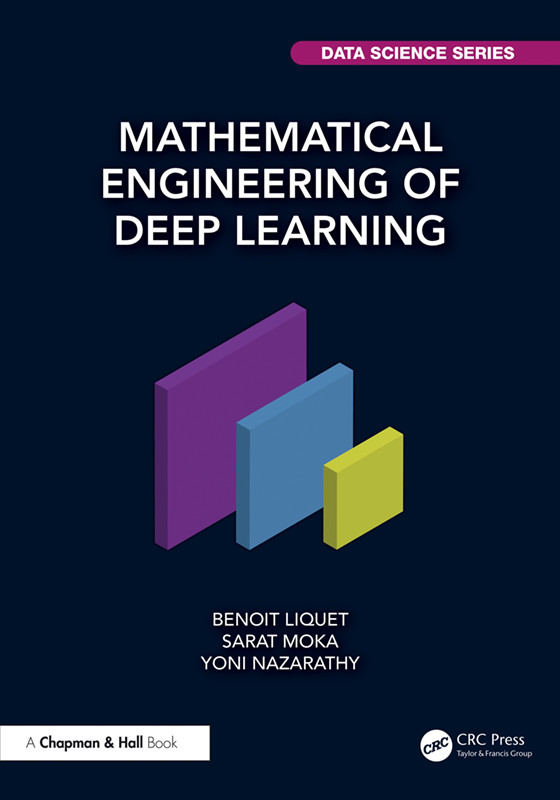Product desciption
Mathematical Engineering Of Deep Learning Liquet Benoit Moka by Liquet, Benoit & Moka, Sarat & Nazarathy, Yoni instant download after payment.
Mathematical Engineering of Deep Learning provides a complete and concise overview of deep learning using the language of mathematics. The book provides a self-contained background on machine learning and optimization algorithms and progresses through the key ideas of deep learning. These ideas and architectures include deep neural networks, convolutional models, recurrent models, long/short-term memory, the attention mechanism, transformers, variational auto-encoders, diffusion models, generative adversarial networks, reinforcement learning, and graph neural networks. Concepts are presented using simple mathematical equations together with a concise description of relevant tricks of the trade. The content is the foundation for state-of-the-art artificial intelligence applications, involving images, sound, large language models, and other domains. The focus is on the basic mathematical description of algorithms and methods and does not require computer programming. The presentation is also agnostic to neuroscientific relationships, historical perspectives, and theoretical research. The benefit of such a concise approach is that a mathematically equipped reader can quickly grasp the essence of deep learning. Key Features: A perfect summary of deep learning not tied to any computer language, or computational framework. An ideal handbook of deep learning for readers that feel comfortable with mathematical notation. An up-to-date description of the most influential deep learning ideas that have made an impact on vision, sound, natural language understanding, and scientific domains. The exposition is not tied to the historical development of the field or to neuroscience, allowing the reader to quickly grasp the essentials. Deep learning is easily described through the language of mathematics at a level accessible to many professionals. Readers from fields such as engineering, statistics, physics, pure mathematics, econometrics, operations research, quantitative management, quantitative biology, applied machine learning, or applied deep learning will quickly gain insights into the key mathematical engineering components of the field.


